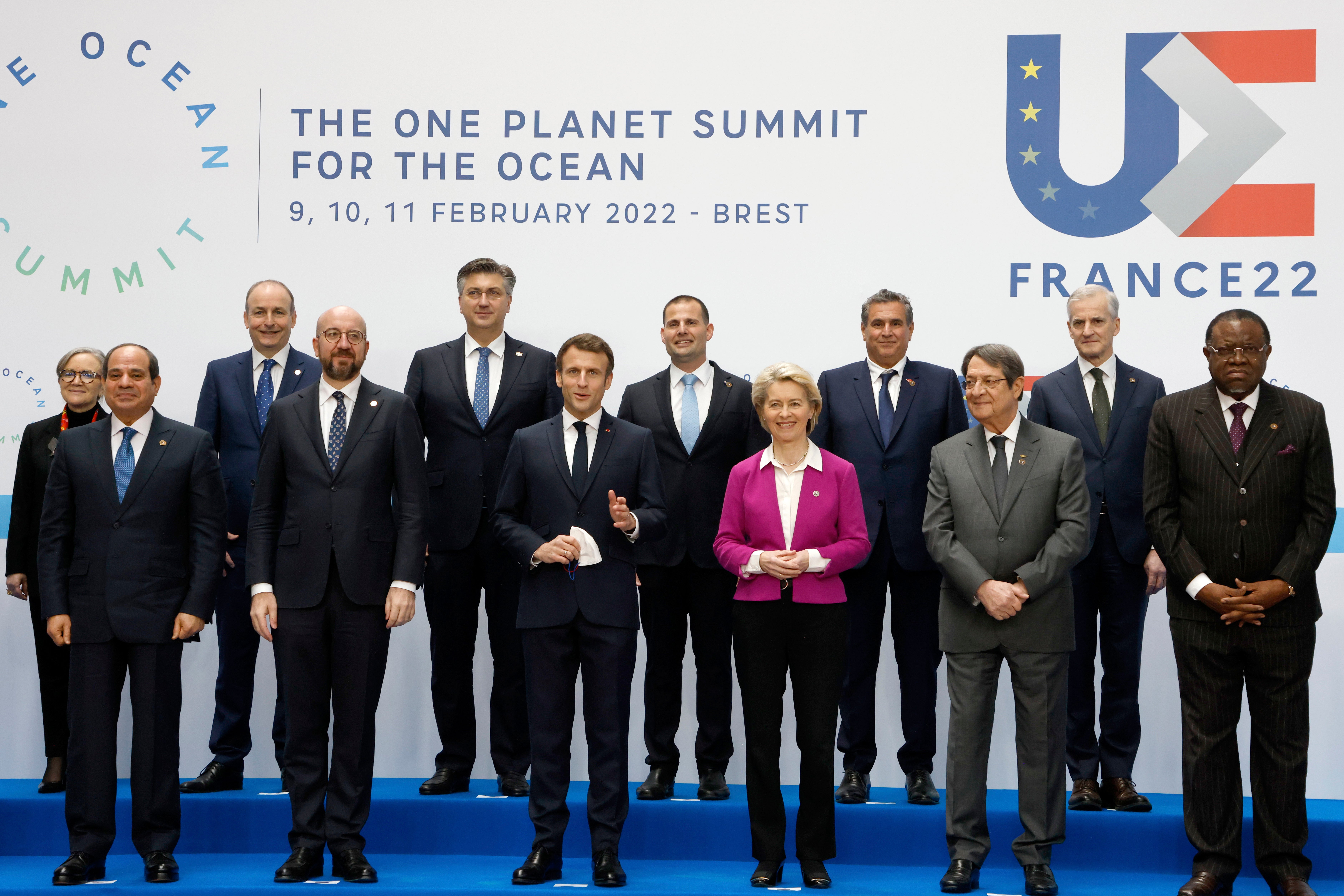World leaders at France summit mull ways to protect oceans
World leaders are trying to save the planet’s oceans in talks on France’s Atlantic coast Friday aimed at fighting overfishing and plastic pollution, and finding fairer ways to manage the seas

Your support helps us to tell the story
From reproductive rights to climate change to Big Tech, The Independent is on the ground when the story is developing. Whether it's investigating the financials of Elon Musk's pro-Trump PAC or producing our latest documentary, 'The A Word', which shines a light on the American women fighting for reproductive rights, we know how important it is to parse out the facts from the messaging.
At such a critical moment in US history, we need reporters on the ground. Your donation allows us to keep sending journalists to speak to both sides of the story.
The Independent is trusted by Americans across the entire political spectrum. And unlike many other quality news outlets, we choose not to lock Americans out of our reporting and analysis with paywalls. We believe quality journalism should be available to everyone, paid for by those who can afford it.
Your support makes all the difference.World leaders met on France’s Atlantic coast Friday to discuss protecting the planet’s oceans from threats such as overfishing and plastic pollution, and finding fairer ways to manage the seas.
The One Ocean Summit comes as European authorities are investigating a mass fish dump in the Bay of Biscay that environmental activists call an example of abuses by huge trawlers that disrupt undersea ecosystems.
Oceans cover more than 70% of the planet’s surface.
French President Emmanuel Macron initiated the three-day summit in the port city of Brest with the support of the United Nations
“Today, we are going to make commitments,” Macron said in his opening speech. “I am convinced they are going to help strengthen helpful actions.”
Egyptian President Abdel-Fattah el-Sissi, whose country will host the U.N.'s annual climate summit this year, European Commission President Ursula von der Leyen, U.S. Special Envoy for Climate John Kerry and several other African and European leaders attended the event in person. Others were to take part via video messages.
Kerry said “the urgency of the plight within which we all find ourselves” deserves attention.
“There are large-scale, extraordinary operations that go on every single day at sea that are indistinguishable from major criminal enterprises on land," he said. "They use appalling practices of labor, money laundering and fraud to destroy the good efforts of fisher people around the world who are trying to live by the rules.”
Illegal activity is estimated to account for about one-fifth of fishing globally.
Unlawful fisheries are “depleting the fish stocks of the world, literally dragging nets that we outlawed several years ago ... and throwing away two-thirds of what they catch,” Kerry said. "We create marine protected areas. But we don’t enforce them.”
Costa Rica, France and Britain launched an intergovernmental environmental group in 2019 to set a target of protecting at least 30% of land and sea by 2030. The High Ambition Coalition for Nature and People now includes 83 countries.
France met its coalition commitments by extending protected areas in the French Southern and Antarctic Territories, Macron announced Friday.
Also in Brest, the United Nations cultural agency UNESCO announced that at least 80% of the world's seabeds will be mapped by 2030, compared to 20% currently.
The United States and France in a joint statement on Friday recognized “the transboundary aspects of plastic pollution and the importance of curbing it at its source.” They said they support launching negotiations at the upcoming U.N. Environment Assembly to reach a global agreement addressing this issue.
“The health of our oceans is at risk,” warned Nicolas Imbert, executive director of the non-governmental organization Green Cross. “We are already late, so we need a shock in order to have strong new commitments and also in order to meet past commitments.”
___
Follow all of AP’s climate coverage at https://apnews.com/hub/climate